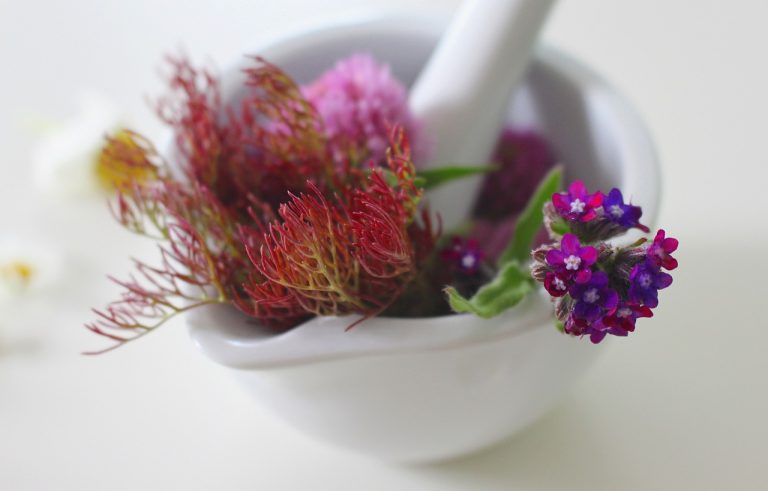In recent years, there has been a renewed interest in natural remedies as people look for ways to embrace healthier lifestyles. Many of these remedies can be found right in your garden, offering a sustainable and chemical-free approach to managing common health concerns. Nature provides an abundance of healing plants that can alleviate symptoms, boost immunity, and promote overall well-being. Whether you’re a seasoned gardener or someone exploring the benefits of natural remedies for the first time, this guide will show you how to transform your garden’s bounty into powerful home remedies.
Healing Herbs in Your Backyard
Herbs are some of the most versatile plants when it comes to natural remedies. Many herbs that thrive in home gardens have medicinal properties, offering relief for everything from indigestion to stress. Basil, for example, isn’t just for enhancing your pasta dishes—it has antibacterial and anti-inflammatory properties that can help with skin irritations and minor wounds. Brew it into a tea, or crush its leaves to create a natural paste for cuts.
Another common garden herb is thyme, which is packed with antiseptic qualities. Thyme tea is excellent for soothing sore throats and easing coughs. Rosemary, a fragrant herb loved for its culinary uses, can also improve circulation and enhance memory. A rosemary-infused oil makes a great massage treatment for tired muscles.
Medicinal Flowers That Heal
Flowers are not just beautiful; many of them offer powerful medicinal benefits. Calendula, often called pot marigold, is known for its skin-healing properties. It can be used in creams, salves, or teas to soothe rashes, eczema, and minor burns. Lavender, another garden favorite, is a natural stress reliever. It calms the mind, promotes better sleep, and can even reduce headaches when used in aromatherapy or as a tea.
Chamomile is another flower with widespread health benefits. It’s famous for its calming effect on the nervous system, making it ideal for reducing anxiety and improving sleep. Additionally, chamomile tea can ease stomach discomfort and aid digestion.
Fruits and Vegetables with Medicinal Properties
Your garden’s fruits and vegetables can also double as natural remedies. Garlic, a staple in many kitchens, is a potent immune booster and a natural antibiotic. Eating raw garlic or adding it to meals can help ward off colds and flu. Ginger, whether grown at home or bought fresh, is a versatile remedy for nausea, inflammation, and muscle pain.
Lemon, rich in vitamin C, is a fantastic ingredient for fighting infections and boosting immunity. Squeeze it into warm water with honey for a soothing drink that can help with sore throats and colds. Even humble vegetables like spinach and kale pack a punch with their high levels of antioxidants and essential nutrients.
Making Your Own Remedies
Once you’ve harvested these natural ingredients, the next step is preparing them for use. Creating your own remedies at home is simple and rewarding. Infusions, such as herbal teas, are one of the easiest ways to reap the benefits of medicinal plants. Steeping fresh or dried herbs in hot water releases their healing properties.
For external applications, you can make salves and balms using beeswax, coconut oil, or olive oil as a base. Infuse the oil with healing herbs like calendula or lavender, then mix it with melted beeswax to create a soothing balm for skin irritations. Tinctures are another option for creating concentrated remedies. These are made by soaking herbs in alcohol or glycerin for several weeks to extract their beneficial compounds.
The Benefits of Gardening for Your Health
Beyond providing a source of natural remedies, gardening itself is a therapeutic activity. Spending time outdoors, nurturing plants, and being in tune with nature can significantly reduce stress and improve mental health. Gardening also offers physical benefits, such as improved flexibility and increased vitamin D levels from sunlight exposure.
Embracing a Holistic Lifestyle
Natural remedies are not just about treating symptoms; they’re about adopting a holistic lifestyle that promotes overall well-being. By incorporating plants, flowers, and herbs into your daily routine, you can create a sustainable, eco-friendly approach to health. From the soothing scent of lavender to the immune-boosting power of garlic, your garden is a treasure trove of healing potential.
Nature has always been a source of health and healing, and by bringing its remedies into your home, you can nurture your body, mind, and spirit. With just a bit of knowledge and effort, your garden can become not just a place of beauty but also a valuable resource for your medicine cabinet.


